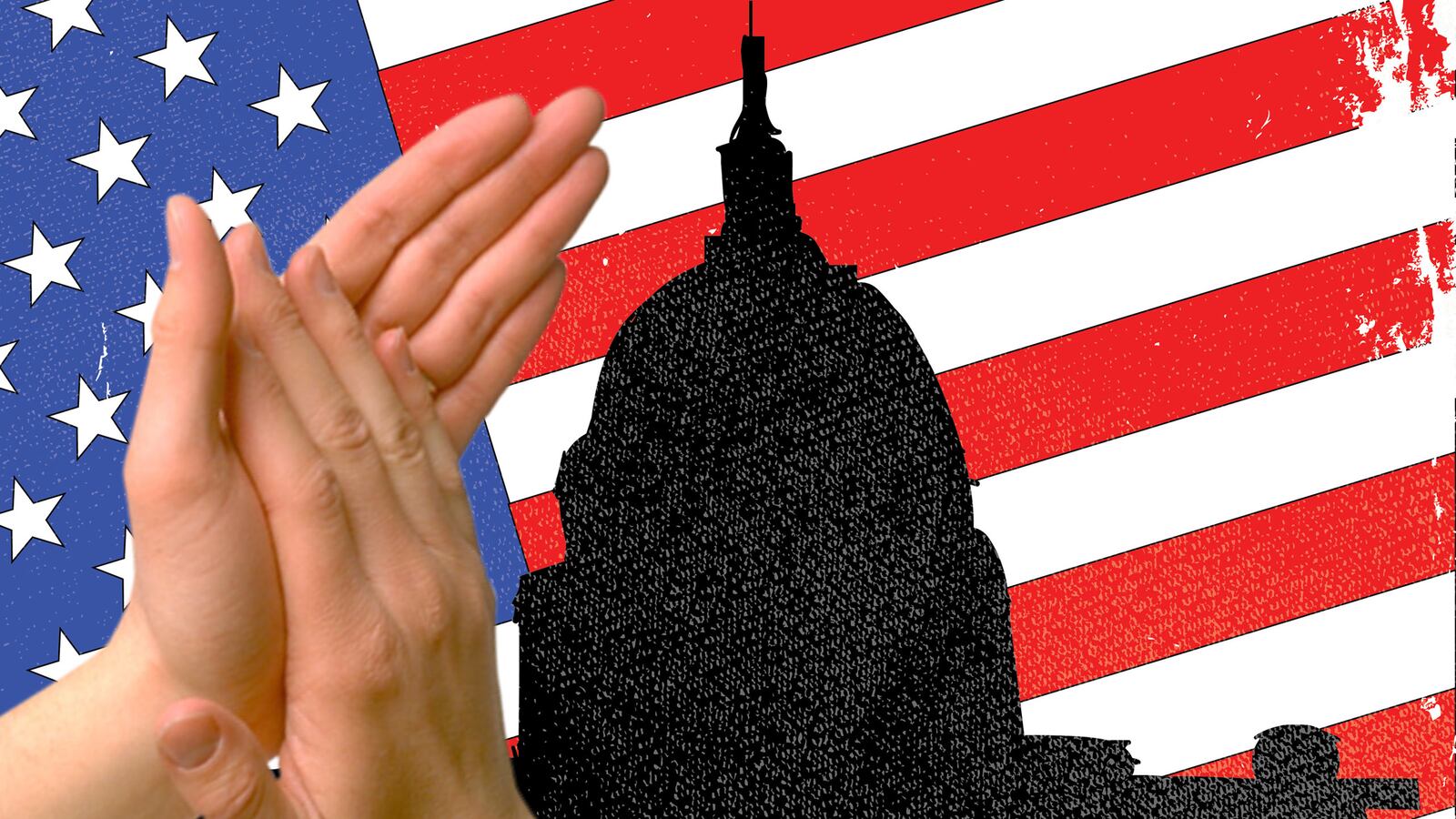They did their best to convince you otherwise. But Congress actually did some things in 2014. It actually kept the government open all year and manage to pass something vaguely resembling a budget. In fact, by the end of 2014, it passed over 220 bills, which were signed into law by President Barack Obama. These are eight of the most interesting laws passed in the second session of the 113th Congress.
No Social Security For Nazis
Even Democrats and Republicans can agree that Nazis are bad and Social Security is good. The No Social Security For Nazis Act (no, seriously, that was the name) represented a combined consensus on both of these issues in banning “participants in Nazi persecution” from collecting Social Security benefits. In particular, it applies to immigrants who lost their U.S. citizenship after their involvement in World War II was discovered. According to the AP, as of October, there were only four people still alive who be affected by this legislation.
Reporting Deaths In Police Custody
The protests sparked by the deaths of Michael Brown and Eric Garner have become front page news. But until recently, there was no requirement for government agencies to report deaths in police custody. The Death In Custody Reporting Act, which passed both chambers of Congress unanimously, requires federal agencies and states receiving federal law enforcement grants to report all deaths in police custody or in the course of an arrest to the Department of Justice. The legislation strengthens and updates a previous version of the bill that expired in 2011.
Making Unlocked Cellphones Legal
The Unlocking Consumer Choice and Wireless Competition Act reversed a controversial 2012 decision by the Library of Congress which forbade consumers from switching cell phone companies while using the same phone without the permission of their phone service provider. The bill, which passed Congress without opposition, is only a temporary fix and expires in 2015. At that point, the Library of Congress can once again decide to prohibit consumers from unlocking their cell phones.
Innovation In Sunscreen
For over a decade, those trying to make better sunscreen found a roadblock at the Food and Drug Administration (FDA). The problem was that the FDA refused to approve any new ingredients for use in sunscreen, year after year. The Sunscreen Innovation Act which passed both chambers of Congress unanimously, would mandate faster action by bureaucrats reviewing these ingredients so that consumers can get the latest and greatest sun tan lotion. Beats burning up in the sun.
Citizenship For a 268 Year-Old Man
Congress unanimously passed a bill to make Bernardo de Galvez an honorary citizen of the United States in 2014. Galvez won’t be able to enjoy his honor though as he died in 1786. Galvez was a Spanish general who fought the British during the American Revolution and led Spanish efforts to successfully retake Florida from Great Britain during the war. (Florida would not become part of the United States in 1819.) Galvez, born in 1746, became the eighth person ever awarded honorary U.S. citizenship by Congress and first since fellow Revolutionary War hero Casmir Pulaski also received that honor in 2009.
Federal Duck Stamp Price Increase
If you want to go duck hunting on federal land in 2015, you’ll have to pay $10 more than you did in 2014. The Federal Duck Stamp Act raised the fee on stamps needed to hunt waterfowl on federal land from $15 to $25. The bill passed without a recorded vote despite opposition from the conservative group Americans For Prosperity, which attacked the legislation as a tax increase. The user fee on duck stamps goes exclusively to funding federal acquisition of wetlands as wildlife habitat.
Slightly Taller Buildings In Washington D.C.
Under the Constitution, Congress has the authority to “exercise exclusive Legislation in all Cases whatsoever” over Washington D.C. Even though it has ceded some of this authority to D.C.’s municipal government under home rule, the federal government still ultimately calls this shots. As a result, to accomplish a minor change in Washington’s building code allowing penthouses to be built on the roofs of existing buildings, an act of Congress was required. This new tweak, passed unanimously by the Senate and by a vote of 367-16 in the House, amended the Height Act of 1910 to allow human occupancy of penthouses that can be no more than 20 feet high. However, the law does nothing to alter existing restrictions which have long limited commercial buildings in DC to being no more than 130 feet tall and residential buildings to a maximum height of 90 feet.
Sea Gull Egg Collecting In Alaska
After 50 years, members of the Huna Tlingit people can finally collect harvest sea gull eggs again in Glacier National Park. In legislation that passed both the House and the Senate unanimously, members of the Hoonah Indian Association can gather the eggs of Glaucous-winged gulls twice a year on national park land. As Robert Starbard, the tribal administrator testified before Congress, ”the collection and consumption of gull eggs was and remains an integral part of Tlingit culture. It is a part of an annual cycle of renewal marking the return of spring.”






